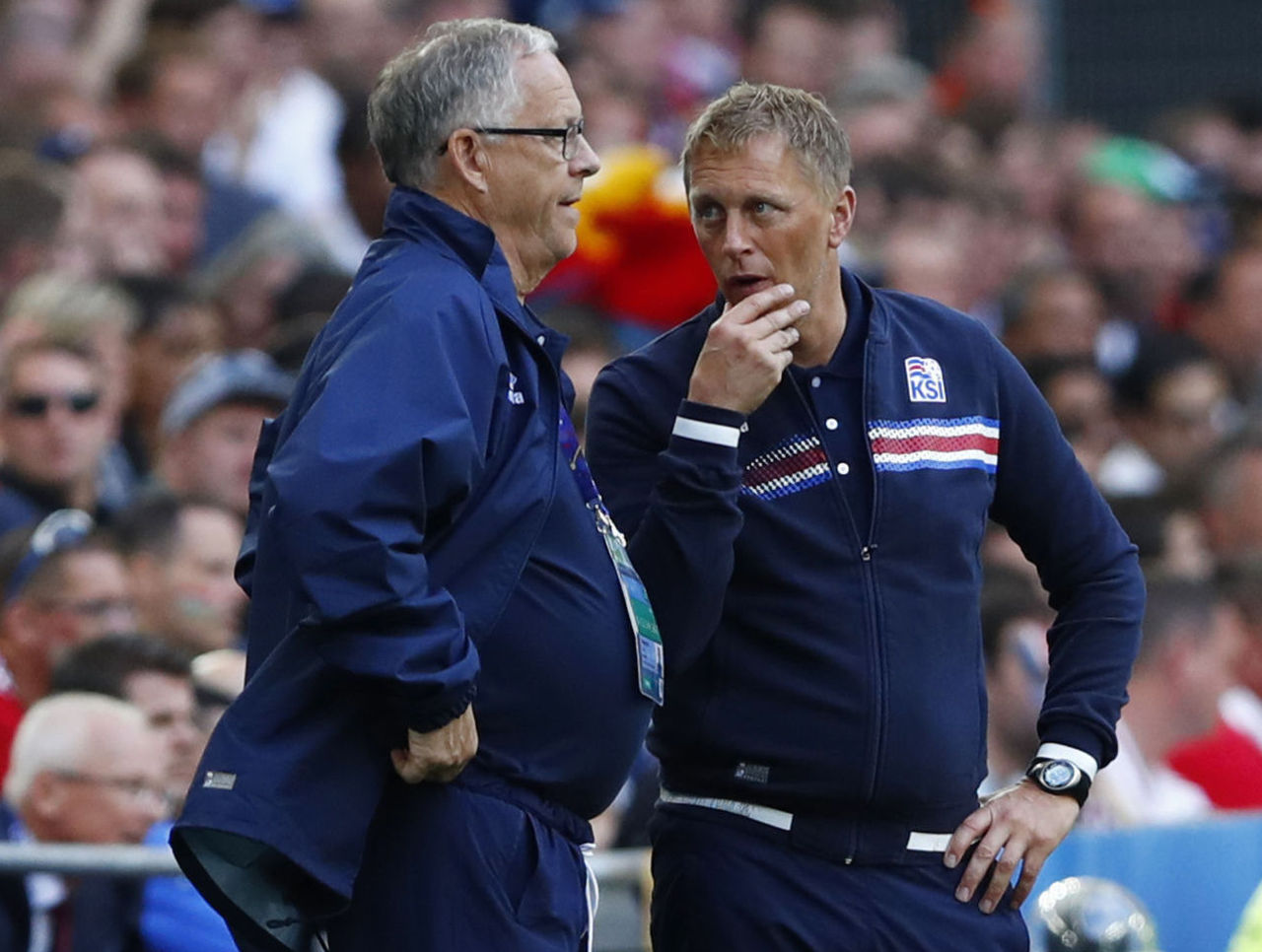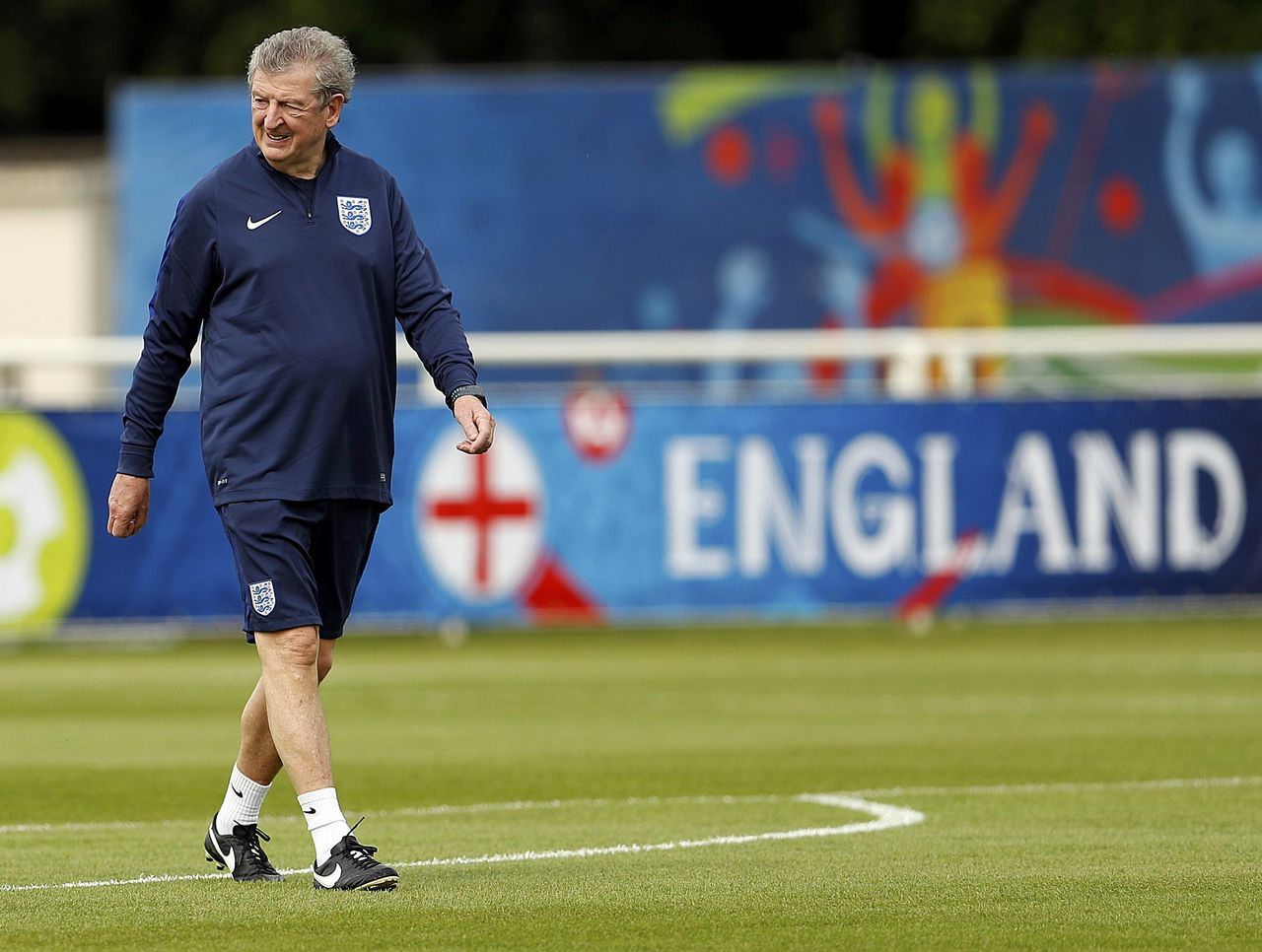For better or worse, managers have been the main attraction at Euro 2016
Who has been the best performer at Euro 2016 thus far? It's a simple question bereft of a straightforward answer.
Major international tournaments are often headlined by one player who stands out above the rest of the field - either for a single moment of magic, or a sustained run of month-long excellence.
James Rodriguez danced his way, literally, into the hearts of football fans everywhere during his breakout showing at the 2014 World Cup; meticulous midfield duo Andres Iniesta and Xavi were at their incisive best at Euro 2012; David Villa single-handedly powered Spain's attack en route to a historic triumph in 2010. The list goes on.
But unlike its quadrennial predecessors, Euro 2016 has been dominated not by those between the lines, but by the sharply dressed bosses patrolling them. Managers and their tactics, for better or worse, are at the forefront of the competition in a more substantial way than ever before.

While not all of the action has been dull as a wet paper bag, even players who have shone at various points are saddled with asterisks.
Gareth Bale has been enormous for Wales, at times dragging his team to a historic semi-final berth, but Ashley Williams and Aaron Ramsey have been equally influential for the Dragons. Cristiano Ronaldo, excepting an explosive spell against Hungary, has lacked the dynamism and scoring touch his game is known for. France has relied upon the combined efforts of its stars, with Dimitri Payet, Antoine Griezmann, and Paul Pogba all enduring subdued spells that have taken some of the sheen off their more dominant displays.
Managerial master class
While the marquee players flip-flop between moments where they flourish and flounder, many of the tacticians on offer have grabbed the spotlight.
None more so than impassioned Italy chief Antonio Conte, who will take home the award as tournament grandmaster after leading a ragtag core of Azzurri workmen to within one penalty of defeating a vastly superior Germany side in the quarter-finals. He had the benefit of relying heavily upon the sturdy Juventus quartet to anchor his defense, but getting Emanuele Giaccherini, Marco Parolo, and 32-year-old Daniele De Rossi to stifle Belgium and obliterate Spain is nothing short of voodoo. Chelsea supporters are salivating.
Related: How Italy restored credibility on world stage with resilient Euro 2016 display
The tournament's two-headed managerial monster, Lars Lagerback and Heimir Hallgrimsson, engineered a storybook run that turned a couple dozen ordinary Icelandic men into national heroes. The players gave every last ounce of themselves to craft the fairy tale, but it was born of the systems forged by the bosses - one a 67-year-old whose most noteworthy job was with the Swedish national team, the other a part-time dentist.
Monday's stirring reception in Reykjavik would not have been waiting for Iceland without the nous of the two coaches.
Arnarholl, Reykjavik, Iceland. 4th July 2016. Ég er kominn heim. #ISL pic.twitter.com/rC2j7UrrNP
— RÚV Íþróttir (@ruvithrottir) July 4, 2016
Pacing along the Welsh sideline, Chris Coleman, perhaps overshadowed by Conte and the exploits of Iceland, deserves just as much praise. After all, it's his unfancied team that's one win away from a berth in the final.
Were it not for the volcano-rich nation's run, Coleman's side would garner all of the Cinderella comparisons.
Tactical tomfoolery
Major tournaments, of course, need their villains. While the aforementioned men shone, some of their peers were equally impressive in sheer ineptitude.
Hello, Roy Hodgson. And goodbye, as it were. The beleaguered gaffer, whose presence weighed down a supremely talented England squad, was guilty of - among many other things - trying to shoehorn Wayne Rooney into a side that was far better without him.
Related: England boss Hodgson blows it in defeat
He resigned in ignominy immediately following the shocking loss to Iceland in the Round of 16.

He wasn't alone, though.
Vicente del Bosque flat-out refused to change his system while his team, the two-time defending European champion, was being obliterated tactically by Italy. Poland manager Adam Nawalka might need to be reminded ahead of his next tournament that substitutions, particularly in matches that reach extra time, are a real thing that exist and can be used.
Then there's Marc Wilmots. Oh boy.
Playing the role of talent-inhibiting buffoon to perfection, the portly bench boss was bamboozled by Conte in the Red Devils' 2-0 loss to the Azzurri. His decision to opt for Marouane Fellaini in the No. 10 role, which simultaneously pushed his best playmaker into an unnatural wide slot, was among the most baffling of the tournament.
Not to worry. Surely he'd learn from his mistakes playing against a three-man backline heading into the quarter-final against Wales - a team that, like Italy, employs three central defenders. Right?
Yeah. Nope.
To make matters worse, with his side chasing a goal in the eventual 3-1 defeat, he turned to none other than Fellaini off the bench, the afro-sporting pylon taking up a central position while Kevin De Bruyne once again wilted after being shunted out wide.
"This was an opportunity we may not get again. I gave him my opinion in the dressing room," goalkeeper Thibaut Courtois said after the match, hinting at a possible altercation with Wilmots.
There was no hero's welcome for the former midfielder in Brussels.
There are still three matches remaining at Euro 2016, and an iconic moment may yet arrive for a French, German, Portuguese, or Welsh superstar. But if it doesn't, we'll always be able to look back on this month-long spectacle as the tournament where tactics and pep talks won the day.